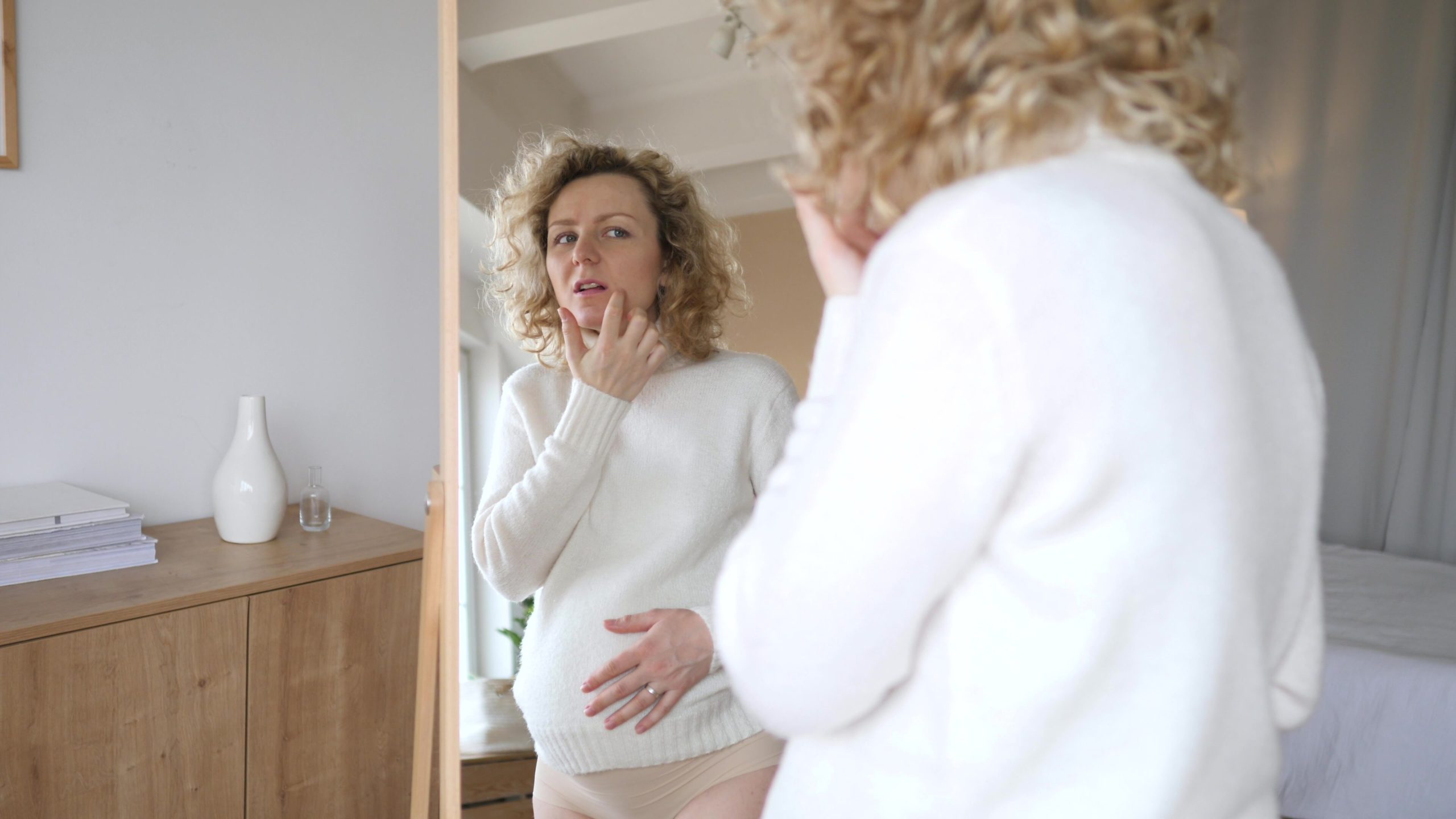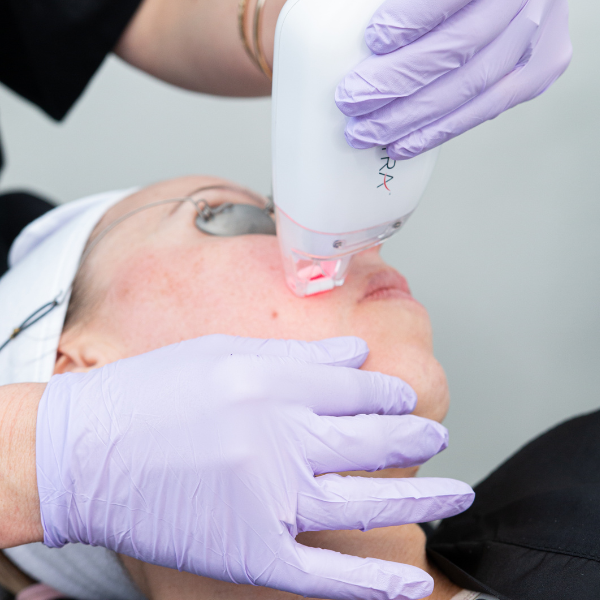I’m pregnant with acne….what can I do?!
During pregnancy, there are surges and fluctuations of hormones which can either clear the skin and lead to that infamous “pregnancy glow”, or have the opposite effect and wreak havoc on the skin, causing unwanted acne breakouts. While there is a general reluctance for both patients and physicians to use any medications during pregnancy, there are a handful of acne treatment options that can safely be used in pregnancy as they have not been shown to cause any risk to developing babies. Ultimately, the comfort level of both the pregnant woman and her treating physician is the most important factor in creating a successful acne plan.
According to the most recent data on medication safety and risk analysis, here is our general guide to the use of specific acne medications in pregnancy:
- Benzoyl peroxide – When topically applied, 5% of benzoyl peroxide is metabolized within the skin to benzoic acid and small amounts may be absorbed. Benzoic acid is used as a food additive, and the amount consumed in our diets is greater than any topical exposure. Given that we consume benzoic acid in the diet, topical use of benzoyl peroxide is considered to be safe in pregnancy. To learn more about dermatologic medications in pregnancy, click here.
- Topical clindamycin/erythromycin – These topical antibiotics are considered safe for use in pregnancy since they can be taken orally with minimal risk, and studies have shown little to no systemic absorption of these antibiotics when used topically. To read more info click here
- Sulfur-based face wash – Topical sulfur preparations have antimicrobial effects and decrease oil production on the skin. Prescription topical sulfur-based cleansers are approved for use in acne and acne rosacea, and can both control breakouts and reduce redness. Topical sulfur is not contraindicated for use in pregnancy.
- Azelaic acid – Topical azelaic acid can be used to treat acne in pregnancy and has the added benefit of improving pigmentation. Oftentimes acne lesions will leave behind unwanted discoloration and marks on the skin, and topical azelaic acid works to treat both the acne and pigmentation, as a pregnancy-safe alternative to other skin lighteners.
- Chemical peels – While most chemical peel ingredients are not considered to be safe in pregnancy, custom formulations of chemical peels can be created to include only ingredients considered safe for use in pregnancy. Alpha-hydroxy acids, such as glycolic acid and lactic acid, when applied at low concentrations for short periods, have not demonstrated any systemic absorption and are therefore considered safe for use in pregnancy. To learn more about chemical peels visit this link
Managing acne during pregnancy requires a thoughtful approach balancing the desire for clear skin with the safety of the developing baby. The surge and fluctuations of hormones can either contribute to a radiant “pregnancy glow” or lead to unwanted breakouts. In fact, a recent article on hormonal acne explores this topic in detail, shedding light on safe and effective treatment options during pregnancy. Fortunately, there are acne treatment options deemed safe for use during pregnancy, offering relief without compromising the well-being of the unborn child.
Explore safe acne treatments during pregnancy at Ayana Dermatology and Aesthetics. Our guide ensures clear skin without compromising your baby’s well-being.
Education:
• Summa cum laude graduate from the University of Florida with dual degrees in chemistry and nutritional science
• Top of the class at Nova Southeastern University's medical school
Dermatology Residency:
• Chief Resident in the dermatology residency program at St. Barnabas Hospital, Bronx, New York
Academic Positions:
• Faculty attending physician at Columbia University, New York Presbyterian Hospital
Certifications:
• Fellow of the American Academy of Dermatology
• Fellow of the American Osteopathic College of Dermatology



